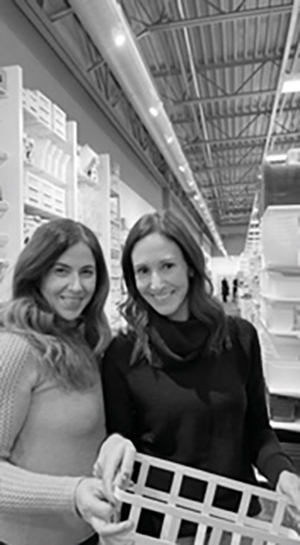
Spring is just around the corner and there is no better time to take stock of your space and refresh your home office. Living in an organized, clutter-free space is beneficial to your mental health and productivity. You are able to think more clearly and feel less overwhelmed when everything is organized. Research has shown that our environment can impact our ability to complete tasks and affect our self-confidence, but it can be difficult to know where to begin. We are constantly asked questions like these: “Do I need to keep these papers?” and “What do I do with all these toys?” or “How do I make room for everything when my storage space is limited?” Below are some simple steps to keep in mind when getting started.
Assess and Declutter: Take a look around your home and identify areas that are the most scattered or disorganized. Grab three garbage bags: one for trash, one for items to be donated and one for things that need to be put in a more appropriate space. Clients assume that they need more shelves, more drawers and more cabinets, but they often don’t. Your goal is to remove the clutter, not create more storage space.
Start Small: Once you are ready to organize, start small. Don’t attempt to organize an entire closet, garage or kitchen in one afternoon. It can get very overwhelming. Start with one category of clothes: dresses, pajamas or shoes. If you have not worn something in two to four years, it’s probably best to donate it. Use the same process when evaluating your kitchen. Try to do one shelf or one drawer at a time. Review your products and throw out items that are expired or that you don’t use anymore. The same philosophy applies to your garage. Divide the area into zones and take care of one area at a time. If you haven’t used that rusty sports equipment or those old lawn chairs in years, throw them out. Let go of things that no longer serve you.
Revisit Your Toys and Books: Sort through kid’s toys every few months. Toss or donate toys that are no longer used and discard those that have missing pieces. If a key part of a puzzle is missing, toss it. Keep toys in clear bins and label them with words or pictures, depending on your children’s ages. Encourage your kids to place toys and books in their proper places.
Invest in a Shredder: You probably don’t need 80% of the paper you have piled on your desk. People are often scared to get rid of paper. All too often people keep documents because they don’t want their personal information stolen and end up accumulating more unnecessary junk. Keep a shredder in your office or by your incoming mail area. As soon as a piece of mail comes in that you don’t need, shred it. Items that you should consider shredding include junk mail, photos, old IDs, travel itineraries, shipping labels, resumes, prescription labels, receipts, return labels, bank statements and canceled checks. When in doubt, shred. For papers that you need to keep, we recommend using a stand-alone scanner. This is a quick, easy and effective way to store your important documents effectively and cut down on paper waste.
Invest in the Right Storage Items: Don’t be tempted to purchase pretty baskets that are not useful or practical. Once you have organized your area, you can assess what storage items you need. We love to use acrylic shelf dividers in pantries rather than baskets. This way you can line up the items and have designated clear sections. For clothing in drawers, including socks, bathing suits and undergarments, we love using drawer dividers. They come in all different sizes and fit almost all drawers. Dividers keep the items neat and confined to their zones.
Establish Dedicated Storage Zones: Store items in specific areas where they are needed. For example, if you have a home office, keep all stationery supplies and chargers there. Keep items close to where you use them for convenience and efficiency. Be sure to store extra toiletries in the bathroom, tools in the garage or utility closet, and umbrellas close to the door. Items that are frequently used should be stored in more accessible areas, while seasonal items, such as holiday décor or ski equipment, should be stored in less accessible spaces like the garage, basement or attic.
Invest in a Label Maker: From labeling boxes in a garage to streamlining your utility closet, a label maker will make it easier for everyone in your home to find what they are looking for. We personally like the Brother P-Touch, but any label maker will do the trick.
Remember to take it one step at a time. Be patient. Rome wasn’t built in a day, and neither will your organized home be accomplished all at once. Good luck!
Melanie Sosland and Ilana Lawrence are professional home organizers. After continuously helping their friends stay organized, Melanie, who previously worked on Wall Street, and Ilana, who works in real estate, decided to start I. M. Organized. Follow them on Instagram at I.M.Organized for more tips and to see some before and afters. Alternatively, they can be reached at: imorganized1@gmail.com.










